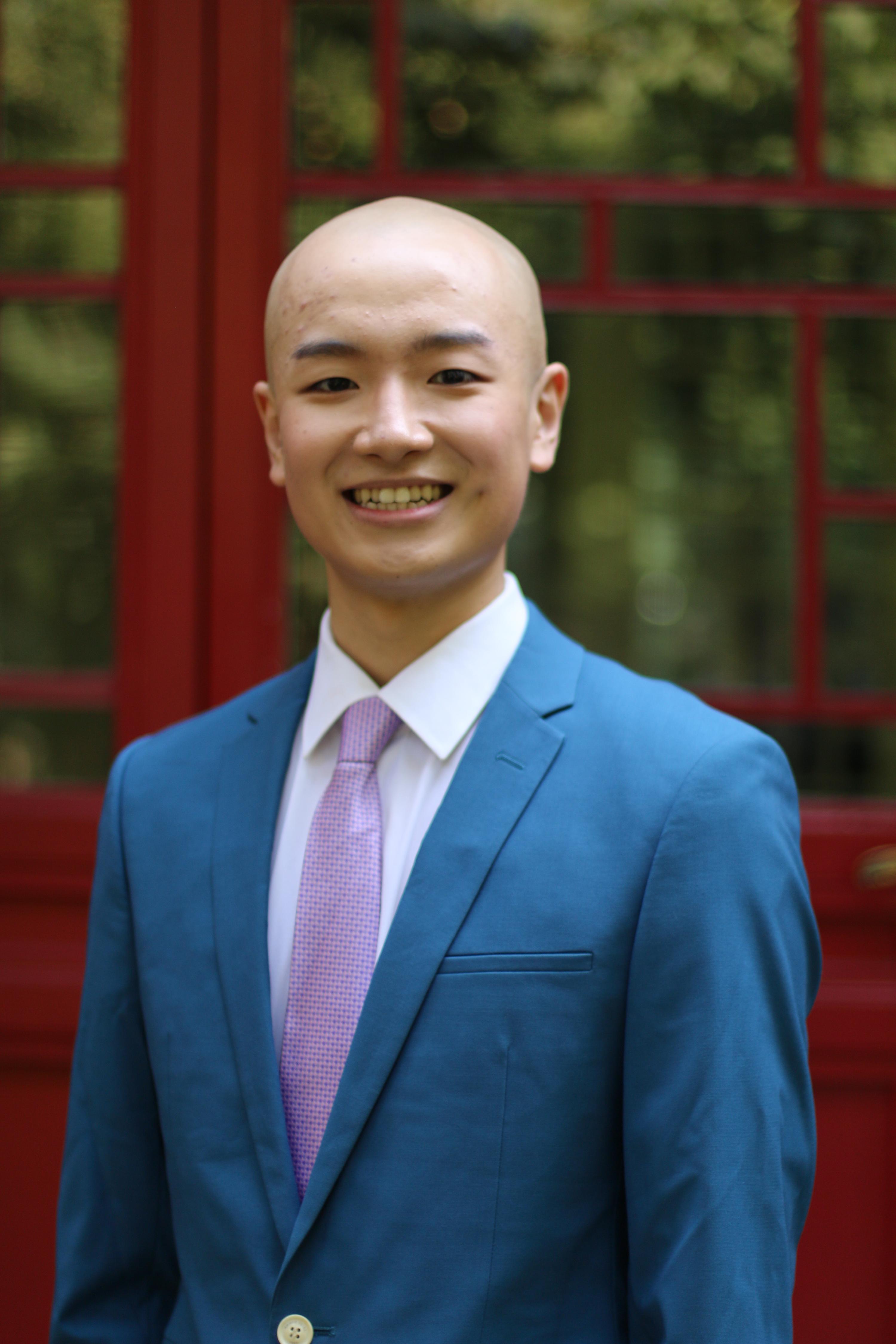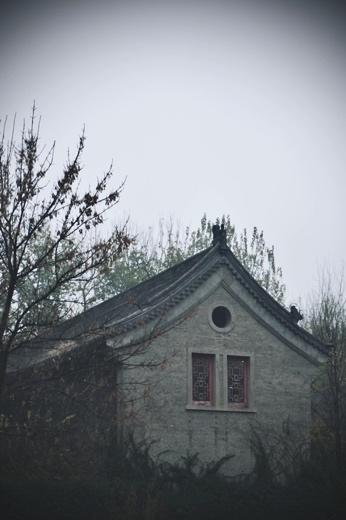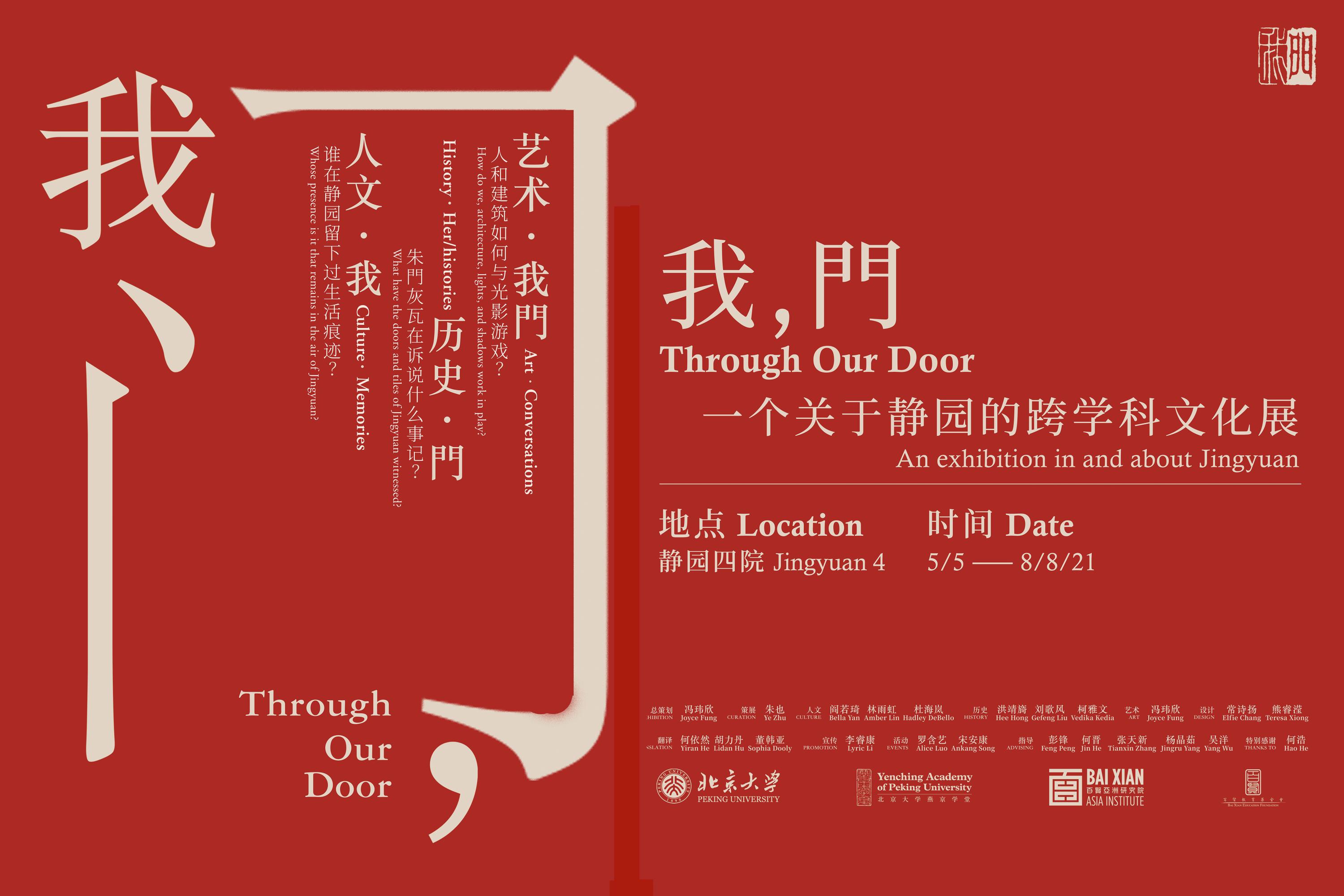Zexin Chen’s story with Jingyuan started from his undergraduate years. Unlike beautiful scenery memories mentioned by many other scholars, he focuses on different interactive scenes that play out in Jingyuan: crowded, barren and changeable, with people crowding around, messy grounds after a heavy rain, etc. His description provides us with another face of Jingyuan, and these are also parts of our Jingyuan memories. Different sides of Jingyuan piece together the full story.

Q: What was your first impression of Jingyuan?
A: I had not visited Peking University before college. The first time I came to Jingyuan, I was enrolled in the undergraduate program. The terrain around Jingyuan is low and the drainage system does not work well, thus every September marks the start of new school year floods in Jingyuan. When I was enrolled, it was raining heavily in Beijing at the time and Jingyuan had a flood, making it quite messy. Hence why in autumn, the yard in Jingyuan appears a bit yellowish, not the vigorous green of spring and summer.
My overall impression of Jingyuan was crowded, barren and changeable. This mainly refers to lawns and trees, as they are barren most of the year and look good only in the summer and fleeting moments during the spring and autumn. As for the six courtyards of Jingyuan, I never entered them during my undergraduate years, which made them very mysterious. My second initial impression was that the security looked intimidating, and the third was that there was always an “office area, no entry” sign at the door. I couldn’t help wondering, why should the door open at all given that entry is prohibited (laugh). The scenery in Jingyuan is really beautiful, except for when it rains (laugh). I have taken plenty of photos in Jingyuan. In addition to the scenery, I have also taken photos of the smog and the bald lawns and trees.

Q: What is your impression of Jingyuan's environment?
A: Every year in April and May, the weather would improve, and the grass would turn green, making it very suitable for flying kites. The reason why Jingyuan makes me feel crowded is that on the weekends it is available for kite flying; Jingyuan would become so crowded that kite strings would become tangled together, and kites were always crashing down (laugh). At that time, parents from outside campus would take their children onto campus. When the weather was fine, the Student Union would also organize us students to fly kites outside. They often bought white kites and we would paint on them and then fly them together.
In spring and summer, many departments and clubs organize activities in Jingyuan, whose venues were, and still are, in great demand. I was in the ColorsWorld club. We would hold “heart circle” activities regularly in Jingyuan. Each time, there were no more than 20 participants, and we would sit in a circle, sharing our stories and supporting each other.
Despite the crowds in Jingyuan, the sanitation conditions are always well maintained, but I seldom see any staff cleaning here. Rubbish can occasionally be found on other fenced lawns on campus, yet there is never any rubbish on open lawns like Jingyuan. I wonder whether this is due to people’s discipline (laugh).
My favorite corner of Jingyuan is where the three trees locate at the door of Jingyuan courtyard 4, among which two are magnolia and the other is probably a peach tree. They are big enough for us to sit and enjoy the shade underneath. My most impressive experience in Jingyuan stems from an English course in American poetry during my undergraduate years. This course required us to read and recite poems every week, so I often read poems under these trees with my classmates. Sometimes we also perused some fragments of prose together.
My favorite seasonal time and hour of the day in Jingyuan is autumn morning. The yellow leaves are very beautiful. For me, Jingyuan in autumn has very uniform colors. They are all bright and warm and really comfortable to look at.
Q: Do you have any unforgettable memories of Jingyuan?
A: During my first semester at Yenching Academy, we would do yoga together on the lawn. At that time, an Indian classmate of mine living next door founded a yoga club. Sometimes as many as a dozen people would do yoga together, but sometimes only three or four. From time to time, there were even passersby taking photos.
In my first year at Yenching Academy, I made a podcast to introduce non-profit organizations (NGOs), and would invite guests to empty classrooms of Jingyuan for a chat. I did this podcast because I think some NGOs are in fact doing very great work, but people won’t be able to have a full picture of them just by looking at their webpages and WeChat official accounts. Therefore, I wanted to invite the founders and workers of these NGOs to tell their stories, so that the audience would understand these organizations and leaders at multiple levels. At the time, my classmates at Yenching Academy also helped me decide to make this Podcast.
In my first year, I also established the Innovation and Entrepreneurship Association at Yenching Academy with my roommate. The idea was to make an incubator and find some sponsorship to support and encourage us to start our own businesses. We held workshops, inviting some young entrepreneurs at our age to talk and to provide some skill trainings. The activities were mainly held in the 30-person classroom on the first floor of the Jingyuan 4, just at the corner.
